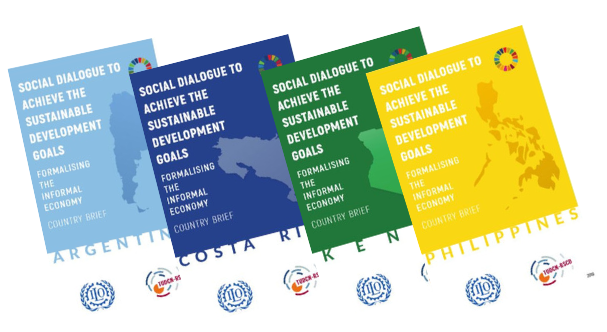More than three in five workers in the world are making their living in the informal economy. Out of them, more than 300 million workers in emerging and developing countries earn and live with less than USD1.90 per day. In the countries covered by the TUDCN research, the informal economy is the only source of revenue for millions of people. However, informality also condemns them to social exclusion and poverty.
Formalising the informal economy in a sustainable way is pivotal to reach the objectives of the Agenda 2030. In this light, social dialogue can play a central role and contribute to achieving the Sustainable Development Goals (SDGs), notably SDG1 (No Poverty), SDG 5 (Gender Equality), SDG8 (Decent Work and Economic Growth) and SDG 10 (Reduced Inequalities).
| Some highlights from the country briefs |
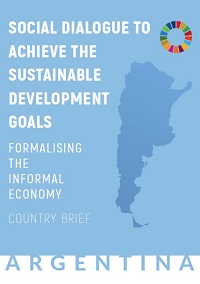
The study of Argentina mainly covers the period 2003 to 2016. Within that period, the use of social dialogue to address the informal economy resulted in a 1440 per cent increase of the minimum wage for informal workers between 2003 and 2013. Undeclared employment plummeted from 48.3% in 2003 to 33.5% in 2017. Furthermore, the number of self-employed workers contributing to the social security system rose to 2.7 million in 2013. This social improvement also reached the sphere of collective bargain agreements, between 2011 and 2017 over 33 collective bargain agreements referred to the informal economy.
— > Download the reader friendly version
— > Download the print version |
|
|
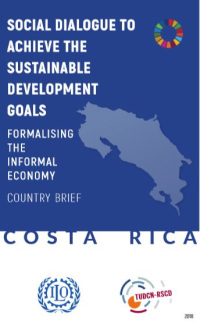
In Costa Rica, the government, employers and workers’ organisations agreed on developing a strategy to implement the International Labour Organisation’s (ILO) Recommendation 204 on the transition from the informal to the formal economy. The objective is to reduce the percentage of workers in the informal economy from current 45 per cent to 32 per cent by 2025. Moreover, thanks to previous initiatives in this area, the number of Costa Ricans who were covered by social security rose from 48 per cent in year 2000 to 62 per cent in 2015.
— > Download the reader friendly version
— > Download the print version
|
|
|
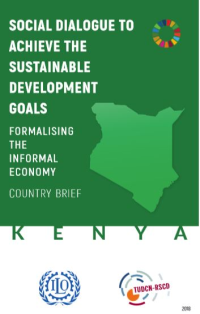
In Kenya, the impact of social dialogue on sustainable development and on the transition to the formal economy has seen some achievements for a series of informal economy workers such as domestic workers, street vendors and the tea and flower pickers. Social dialogue enabled the agreement on a minimum wage increase of 18 per cent for domestic workers in the biggest cities of the country, meaning that their salaries went from USD30 to USD130. Social dialogue also made it possible to formulate five labour laws that apply to all workers, be they informal or formal, meaning that they have equal rights and should receive equal pay for work of equal value. Tea and flower pickers’ union negotiated a collective bargaining agreement with the sector’s employers resulting in a 23 per cent pay rise for the workers and a 28 per cent house allowance increase.
— > Download the reader friendly version
— > Download the print version
|
|
|
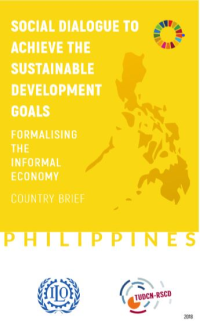
Philippines is one of the world’s four top countries sending migrant domestic workers in the world and employs nationally over two million domestic workers. Of them, 84 per cent are women. The vast majority of these jobs are informal. Since 2009, the country has been taking serious steps to formalise domestic worker. A social dialogue process led to the ratification of the ILO Convention 189 on Domestic Workers, which was followed by the approval of a Domestic Workers Act in 2013. This law led to a series of improvements of the status of domestic workers. The minimum wage rose, a working time protection was approved, child labour in domestic work was forbidden and the right to social security and health insurance coverage was granted.
— > Download the reader friendly version
— > Download the print version
|


